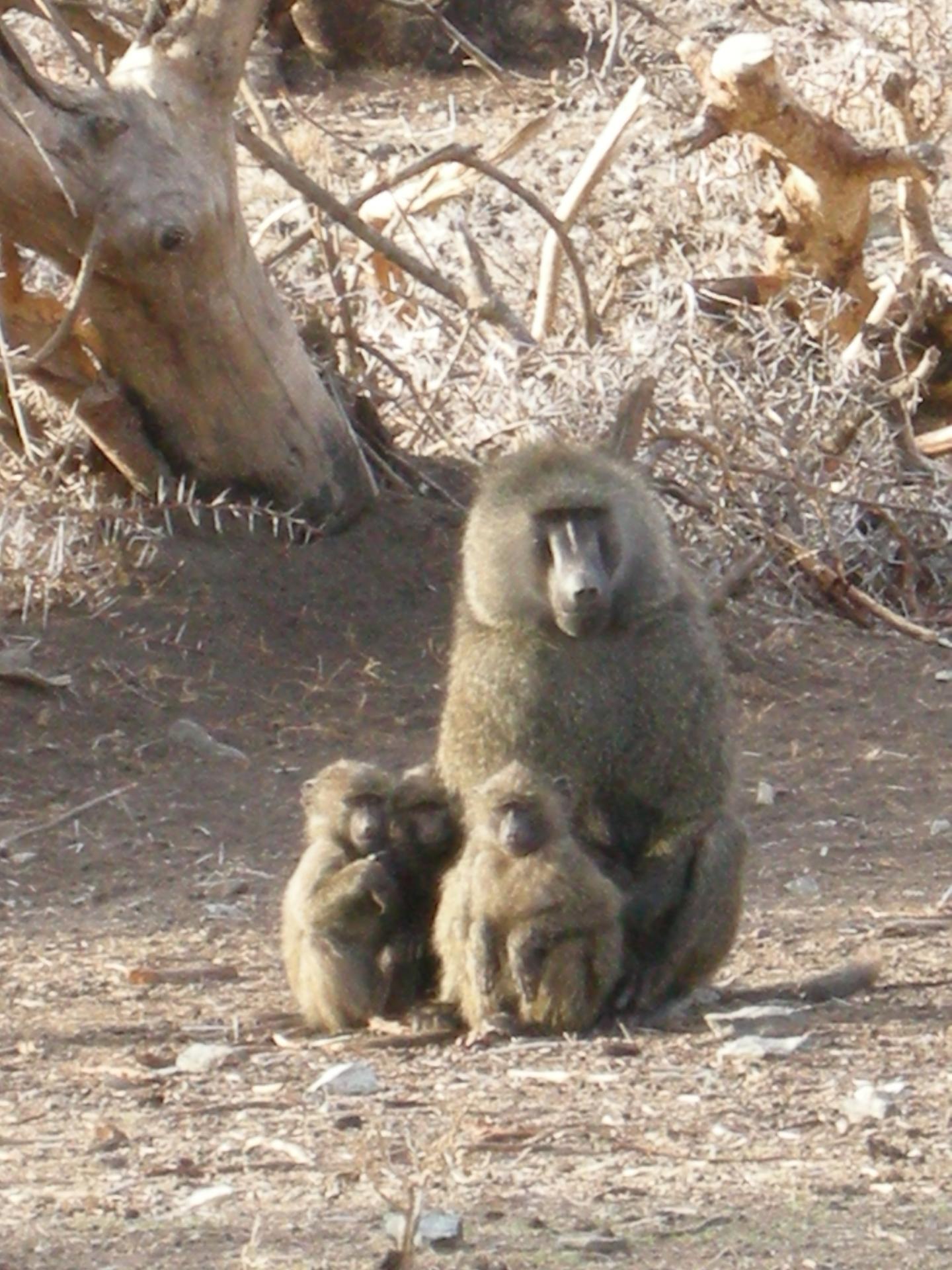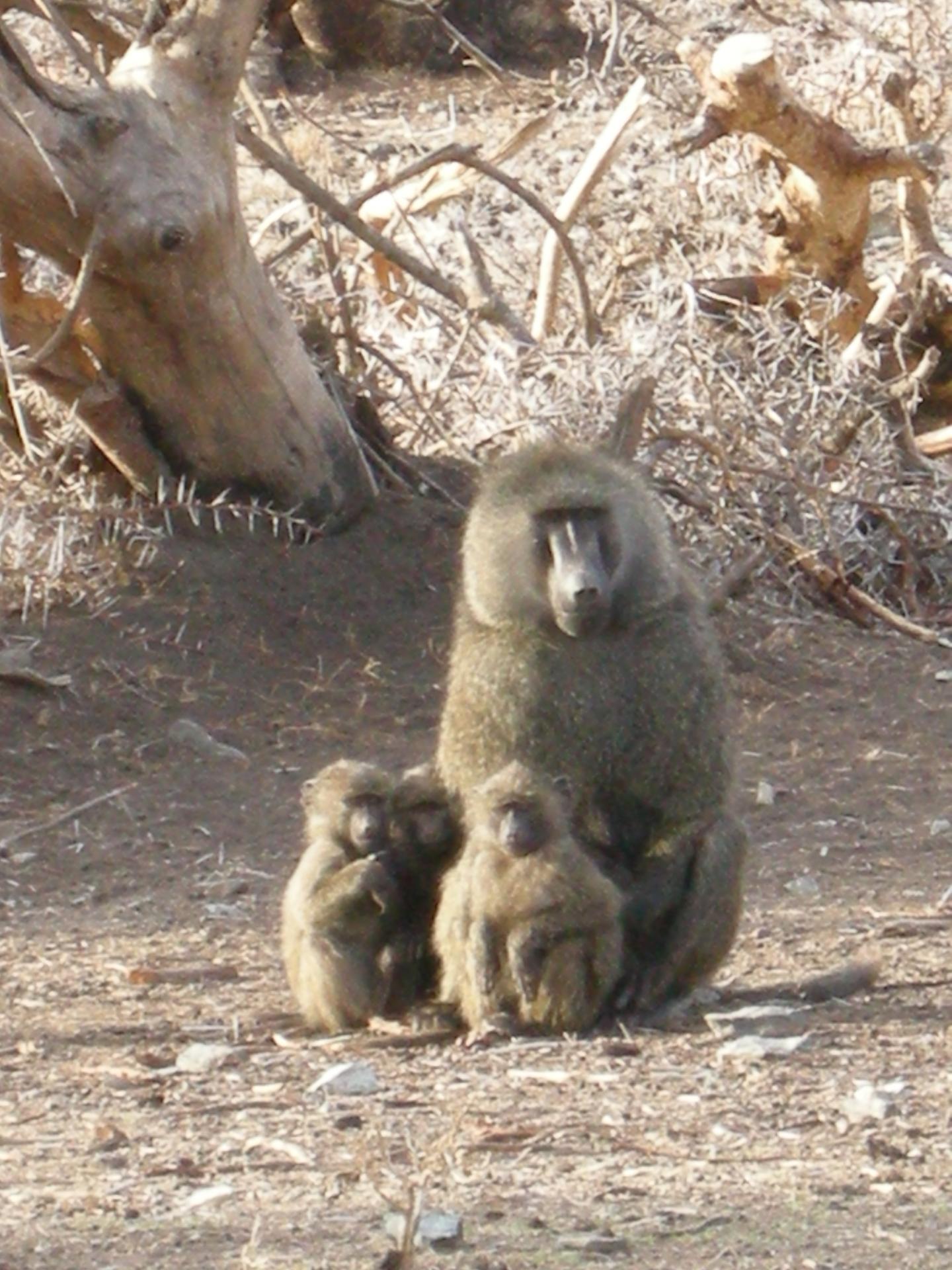
Credit: Emily C. Lynch, Project Papio, Rutgers, The State University of New Jersey
For many female mammals, mothers and maternal sisters dominate all aspects of an individual's social life. Emily Lynch of the University of Missouri, Columbia, in the US argues fathers might play a significant role, as well. She is the lead author of a study that highlights how social bonds develop between paternal half-siblings when their shared father is in the vicinity. Her findings are published in Springer's journal Behavioral Ecology and Sociobiology.
During their juvenile and adolescent years, primates acquire the skills they need to survive and to reproduce. This includes learning how to forage, avoid predators, and socialize with others. Kinship and family bonds that play an important part in the evolution of such social behavior have been studied widely in primate societies. Most of these studies have however focused on the interaction between maternal kin within close female-dominated primate groupings.
Lynch and her colleagues studied the movements and interactions of a group of 39 immature olive baboons (Papio hamadryas anubis) in the Laikipia district of Kenya for fourteen months. Half of the parents of the baboons in this group had been caught by leopards within a period of two months prior to data collection. This relatively rare occurrence allowed the researchers to examine possible differences in the social bonds and behavior of wild immature baboons that grow up with or without the influence of mothers and fathers. They noted, among others, aspects related to grooming. Fecal samples were also collected and were used as genetic samples to establish kinship.
The strongest bonds were found between young baboons who shared a mother, while the weakest relations were among those who were not related in any way. Notably, paternal half-siblings enjoyed bonds of intermediate strength. This bond only existed among immature olive baboons when their mutual father was around. His presence also increased the chances that his offspring would groom each other. When their fathers were present, young baboons had weaker relationships with maternal half-siblings than those without fathers.
"The presence of a father in a group facilitates the development of strong social bonds among his offspring," says Lynch, who believes that relationships with paternal kin may be just as critical to the social structure of an olive baboon group than those made up of maternal kin.
"Offspring may be able to 'recognize' one another through a shared association with their mother's male friend, who is the putative father," speculates Lynch. "This recognition may be driven through familiarity with a shared father or through some form of phenotype matching."
###
Reference: Lynch, E.C. et al (2017). Fathers enhance social bonds among paternal half-siblings in immature olive baboons (Papio hamadryas anubis), Behavioral Ecology and Sociobiology. DOI: 10.1007/s00265-017-2336-y
Media Contact
Melanie Lehnert
[email protected]
49-622-148-78122
@SpringerNature
http://www.springer.com
Original Source
http://www.springer.com/gp/about-springer/media/research-news/all-english-research-news/sibling-bonding-is-stronger-when-dad-s-around/13307828 http://dx.doi.org/10.1007/s00265-017-2336-y





